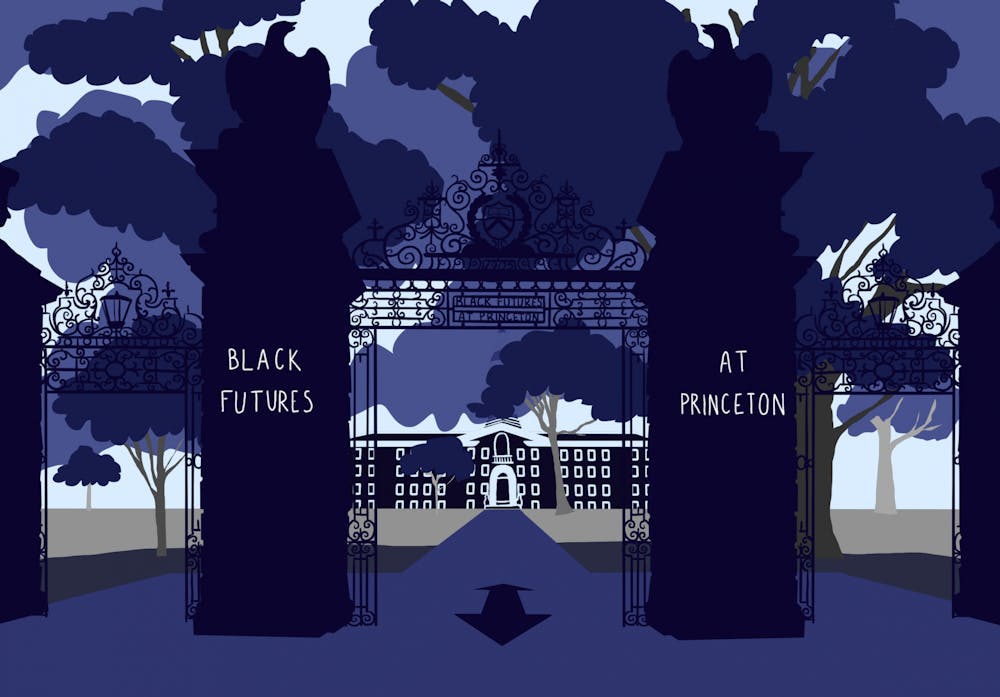This article is part of the Opinion section’s Black Futures at Princeton series. Click here to view the full project.
The American Whig-Cliosophic Society, colloquially known as Whig-Clio, is the oldest collegiate literary and debate society in the nation. Usually we say this with pride, as an impressive feature that sets us apart. But, like Princeton itself, Whig-Clio’s extensive history means it is wrapped up in the darker sides of American history, too.
The Princeton & Slavery Project has done incredible work tracing the University’s connections to slavery and racism throughout the centuries. Though I was familiar with certain stories on the website from research for a history class, it wasn’t until last week that I discovered the page about Whig-Clio, titled distinctly yet powerfully: The Whig-Cliosophic Society and Slavery. As President of the Society, the article compelled me to reflect on the potential for Whig-Clio in creating a more inclusive and just campus. The introduction to the website entry reads:
Princeton’s rival Whig and Clio societies provided students with powerful platforms to discuss controversial issues of the day, frequently slavery and emancipation. From the late 18th century to the outbreak of the Civil War, members of both societies consistently opposed the emancipation of slaves, fostering a conservative, anti-abolition intellectual climate on campus.
At the time that Whig-Clio hosted debates and speeches about slavery and emancipation, the organization and its role on campus was far different than it is today. From Whig-Clio’s founding in 1765 until 1928, Whig and Clio operated as two separate societies within the club. Moreover, Whig and Clio were much more dominant in campus life, acting as “separate colleges within the College of New Jersey, offering their own classes, curriculum, and even diplomas — aptly described as ‘little Republics’ unto themselves.” Thus, what Whig-Clio chose to do with this influence was extremely consequential. However, rather than using speech and debate as a means to imagine and argue for a more just society, both Whig and Clio reinforced injustice time and time again.
From the late 18th century through the Civil War, Whig-Clio members constantly debated slavery and emancipation. As illustrated within the documents uncovered by the Princeton & Slavery Project, in 1792, for example, students debated the motion, “Is the emancipation of slaves, without preparing them by a proper education to be good citizens, consistent with humanity and sound policy?” In 1809, they debated whether “the universal emancipation of slaves in the United States, at present [would] be consistent with either justice or good policy.” In 1839, by a vote of 24–6, Whig members supported the motion that it would “be bad policy to immediately abolish slavery.” Clio, though less Southern and conservative, also overwhelmingly landed on the pro-slavery side of its debates.

The Princeton & Slavery Project’s article also notes that the votes following debates on other topics such as gender equality fluctuated, suggesting that students voted based on the strength of the speakers’ arguments rather than their preconceived notions. When slavery was the subject, however, students in both Whig and Clio consistently voted against abolition.
It is easy to push these facts aside and say that the Whig-Clio of today is distinct from the Whig and Clio societies of the 18th and 19th centuries. But as James Baldwin said, “history is not the past. It is the present. We carry our history with us. We are our history.” Within Whig-Clio’s history is the central paradox of debate: it can be a space to interrogate and challenge the status quo or a means to reinforce it.
Whig-Clio’s core values of debate and civic engagement are central to creating a more just Princeton. In order to create a space that welcomes and affirms all Princeton students, we within Whig-Clio must absorb one of the key lessons of this Princeton & Slavery project article: some issues are matters of justice versus injustice, beyond the bounds of debate. Free speech does not mean that every conceivable view carries equal merit. Moreover, we must not use proclaimed commitments to debate or open discourse as a disguise for reinforcing harmful biases. They can be powerful means to greater inclusion, if wielded mindfully. The challenge and responsibility of societies like Whig-Clio, then, is to understand those boundaries.
The members of the 18th and 19th century Whig and Clio could never have imagined the Whig-Clio of today. Their view of humanity was limited by racism, which thus limited their capacity for debate and discourse.

We must broaden our imaginations and think beyond our status quo to achieve a more just reality. Debate and discourse allow us to do so. Our goal is not to tell people what to think, but to provide a space to think, together, about how to advance towards a more just society.
In recent years, Whig-Clio has increasingly engaged in conversations about race and justice, on campus and beyond. From Senate Debates on legacy admissions to collaborations with the Rikers Debate Project on felon disenfranchisement and defunding the police, we have created spaces to consider diverse perspectives on the consequential issues of inequality in our time.
Knowing that Whig-Clio has reinforced injustice in the past, we must continue to be intentional in how we foster constructive debates that move the conversation forward, through our Senate, speaker, and social programming. Understanding the role the Society can play in the larger Princeton community, we must carry our history with us as we reimagine the future of justice on our campus and beyond.
Julia Chaffers is a junior history concentrator from Wellesley, Mass. She can be reached at chaffers@princeton.edu.








